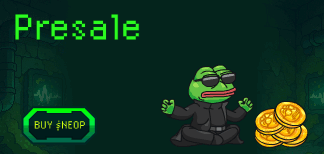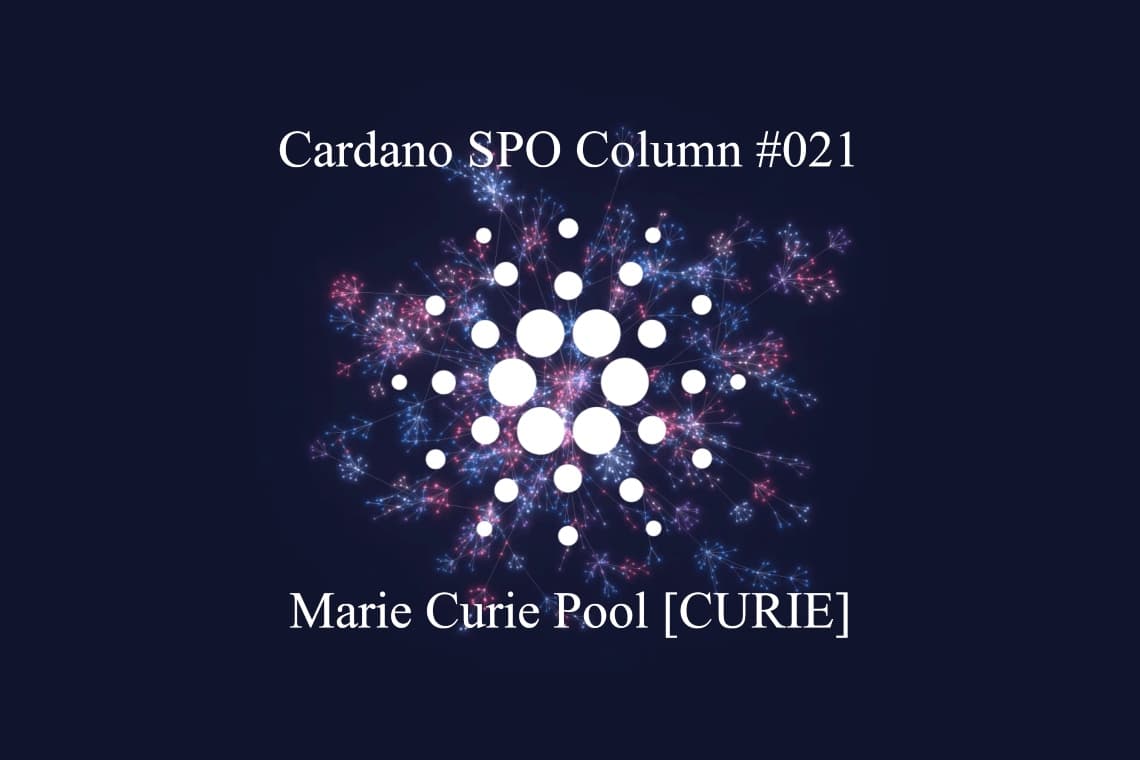This week’s guest on the Cardano SPO Column is a stake pool dedicated to improvement of science and biomedicine operated by a scientist and pharmacist: Marie Curie Pool [CURIE].
Last week’s guest was a stake pool whose mission is to make staking ADA as simple as possible.
This initiative is a point of reference for everything Cardano and every week or two we will invite a Stake Pool Operator (SPO) to answer some questions and give us an update directly from within the Cardano community.
Considering that many of our readers are new to the crypto space, we will have a mix of simple and technical questions.
Hello, thanks for your time. Please introduce yourself, where are you based and what is your background?
Hello! Thank you for inviting me. My name is Zvonimir Mlinarić and I’m from Zagreb, Croatia. I’m a junior scientist and I am just finishing my master studies in pharmacy. Besides that, I am also a stake pool operator and I’m working at fintech and crypto startup Revuto.
In science, I am currently working in glycobiology, to be more specific glycan analysis. In my free time, I like to be with people I love, drink a good beer and watch a good movie.
How did you find out about Cardano and what motivated you to start your own stake pool?
I’ve been a cryptocurrency enthusiast since 2017. I entered the industry because I like the concept of peer to peer digital assets and I’m also fascinated by how blockchain technology solves some of the mathematical, logical and cryptographic problems. Then, for some time I was not very active in the crypto industry because I was really busy with my pharmacy studies and the research I was working on.
However, in 2020 I got more and more interested in the crypto world again and that is when I started to realize the potential of Cardano’s scientific background. For some time I was buying ADA and some other cryptocurrencies and at the beginning of 2021, I decided that I want to actively promote decentralization and security of the Cardano network. This was when I decided to start my own Cardano stake pool. It was not an easy period since it was challenging to learn how to start and maintain a stake pool, but with some hard work and the help of my friends, I made it.
As a scientist you surely value Cardano’s peer-reviewed approach, can you describe this process and outline the pros and cons?
Yes, as a scientist I really admire that Cardano is trying to build an ecosystem that is backed by science and peer-reviewed papers. This was one of the reasons that got me into Cardano. The advantage of building something based on science is that you can actually prove that something is fair, secure or whatever you want to prove. Science can sometimes be wrong, but if done properly, it can give us insights into how things work and then we can design a product, a network or an entity that is more secure and robust.
However, this scientific approach can sometimes be slow compared to the dynamic crypto world. Therefore, it can take months or years to implement some peer-reviewed paper into a real product or update of the network.
It is often said that data is the new oil, however, most of it is collected without recompensation for users, can blockchain technology change this? How could Cardano revolutionize the data industry?
Yes, that is right. We are living in times where data or information about something is perhaps the most valuable asset of all. A few hundred years ago, science could be done in someone’s basement and conclusions about how something works in nature were deduced from one’s experiences or impressions. Today, science uses huge amounts of data to arrive at more precise conclusions about how things actually work. This data can be collected in various ways, however, a huge amount of data is still being taken from people without them being aware of it. In some cases this data is used to improve our lifestyle, to design new drugs or things like that, but sometimes this data is used solely for the profits of somebody who has taken it and used it.
Blockchain technology, and Cardano in particular, can solve this problem by storing and tracking our data which is encrypted by algorithms. Then, someone can make a request to decrypt our data and use it for specific use cases and we could approve it or deny it in an application or some other way. Also, we can get compensation for this sharing of our data or we can decide to make it free if we support the use case. Cardano is already doing something similar with Atala Prism.
Many thanks for this interaction. Do you have something to add? Where can people find you?
Thank you once again for inviting me! People can find me either on my private social media accounts (Zvonimir Mlinarić) or social media accounts (Twitter and Telegram) and the website of Marie Curie Pool. If anyone needs any help or just wants to interact feel free to reach out to me. Moreover, if anyone has some ideas about how to connect blockchain technology with science and biomedicine, feel free to reach out to me because this is my interest too.
Disclaimer: The opinions and views of the SPOs are their own and do not necessarily reflect those of the Cardano Foundation or IOHK.


